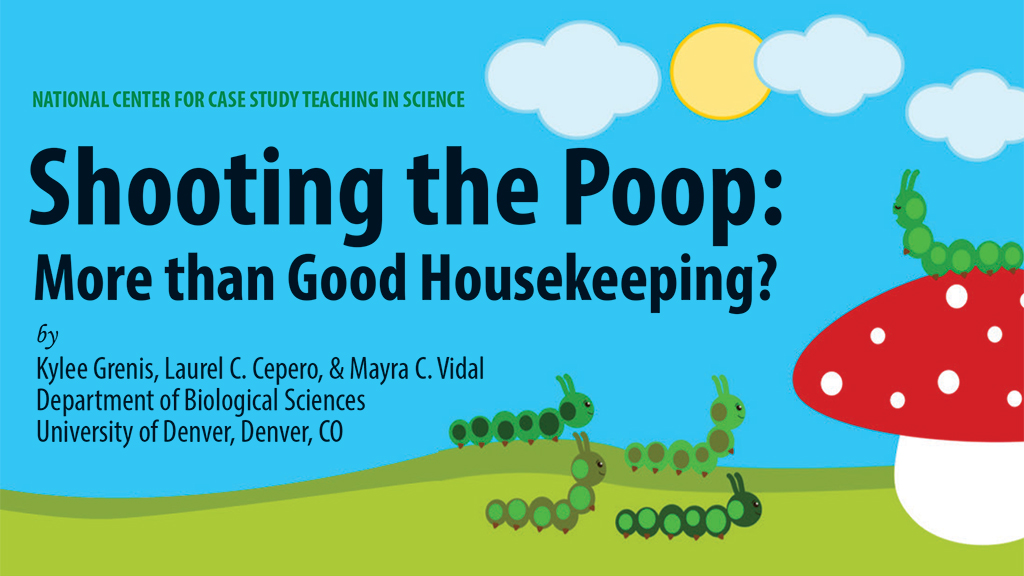Abstract
This group-based case study is based on research by Dr. Martha Weiss using silver-spotted skipper caterpillars (Epargyreus clarus (Lepidoptera)). These insects perform the unusual behavior of flinging their frass (excrement) great distances away from their leaf shelters. This charismatic study system, besides being appealing to students, has the advantage of having several plausible alternative adaptive hypotheses to investigate. After viewing a brief PowerPoint presentation that introduces the perils of caterpillar life and a video demonstrating their unusual behavior, students brainstorm hypotheses and experiments to test them. Students then receive a set of datasheets and questions that guide them to an understanding of the actual experiments that Weiss conducted. The conclusion of the case provides an opportunity to discuss the difference between statistical and biological significance, a distinction often neglected. This case was developed for introductory-biology major undergraduate students, but can also be used in any undergraduate course involving the evolutionary concepts of adaptation and fitness.



